The Faculty of Medicine has gathered together interviews with staff across the department, from doctors to scientists, teaching staff and researchers, to give a picture of the range of work that goes on in the Faculty. Click through the tabs to read more about our featured staff, their diverse career paths that can come from studying Medicine. Find out more about what brought our staff to Imperial, to Medicine, how their work has developed here, and what their plans are for the future.
Meet our Role Models
- Professor Shahid Khan
- Professor Alison McGregor
- Dr Deepak Barnabas
- Dr Arun Notaney
- Dr Richard Pinder
- Dr Lydia Boynton
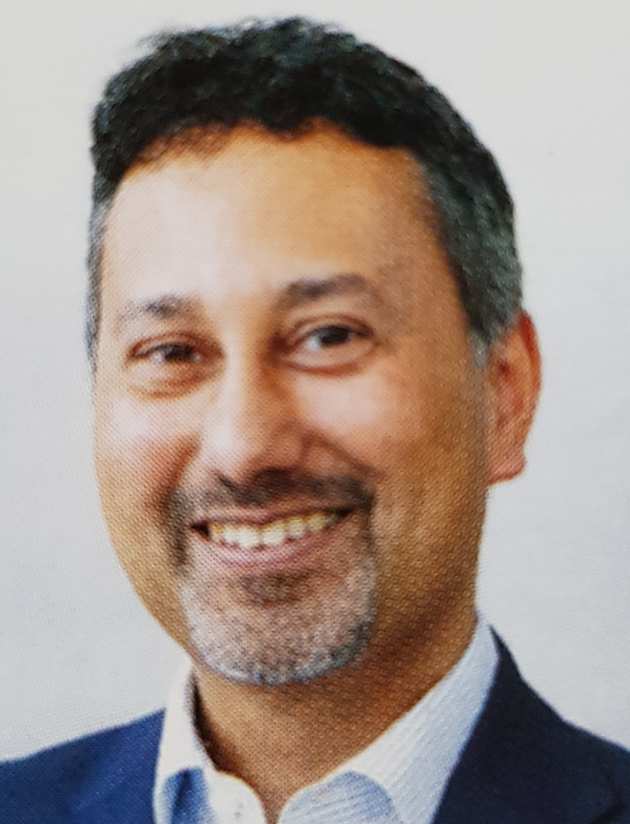
Where I've been:
What inspired you to study medicine?
As a child I was fascinated by doctors as a youngster – they seemed to have this incredible knowledge and skill set, almost like a magical superpower. As I got older, I was inspired by the career as it allowed combining science with practical skills applied to real individual people, and with a huge diversity in career roles
How long have you been at Imperial and why did you choose to work here?
I was appointed Consultant Physician in 2007, and prior to that did my PhD at Imperial College London on liver cancer (awarded in 2003). I chose Imperial due to its impressive international reputation for excellence in science and education, not just the clinical aspects.3. Has Medicine always been in your family’s past? Although I do have some distant cousins who are doctors, none of my parents or grandparents were Medics, so it’s not really been a family thing.
You have recently taken over as Director of Admissions and Inclusivity? How have you found that position?
I have really enjoyed the role of Director of Admissions and Inclusivity, although taking over the position as the COVID crisis hit the UK and massively disrupted exams etc was not good timing! I believe my personal experiences allow me to bring a balanced approach to the role, which I believe to be an important job.
Have you come across any hurdles during your career?
Many, many hurdles! But I wouldn’t change anything – and successfully overcoming them have made me a better person.
Where I am now:
What is your area of research/work?
I am actively engaged in research into Liver cancer, including the epidemiology, aetiology, genomics, risk factors and biomarkers.
What made you chose your specialism?
I was attracted to Gastro/Hepatology due to a combination of reasons: there is a wide diversity of pathology, there are lots of procedures, and many successful therapies meaning one can do a lot for one’s patients. Furthermore the specialty has a lot of active research going on.
Can you describe some of the most interesting points / milestones you have come across in your clinical and research field?
There are many but I will pick two. One is being able to now successfully cure patients with hepatitis C, which was a disease we did not even know about when I started Medical School even though it killed thousands of people. So in my career I have seen this disease become discovered, seen it cause cirrhosis, liver cancer and death in many, then seen treatments emerge which gradually improved, contributed to trials and now the disease has become curable. The second would be the developments of several new treatments for primary liver cancer, which ahs resulted in the ability to cure some cases and prolong life in many others.
What's next:
These are exceptional times to be working in Medicine. Is there anything in your background that has prepared you for working during this crisis? / What has experience taught you about responding to it?
I think the long and gruelling hours I did as a Junior doctor have helped me cope, as well as the training I’ve had. Most of all has been the camaraderie of fellow medics. Experience has taught me to value my colleagues above all – colleagues at all levels and across healthcare professions as Medicine is most definitely a Team effort
How has the COVID-19 pandemic affected your work and do you see your clinical / research work changing in the future? Are you involved in the UK response? Peripherally, yes. It’s meant doing a lot of remote working: e.g. Telephone clinics for patients, being less able to get tests done as quickly as I’d like. On the plus side, we have realised that many meetings we do on the Academic side can be done via TelComm Apps without much loss of substance.
What are you most looking forward to in the next academic year?
Being able to meet my students in person!
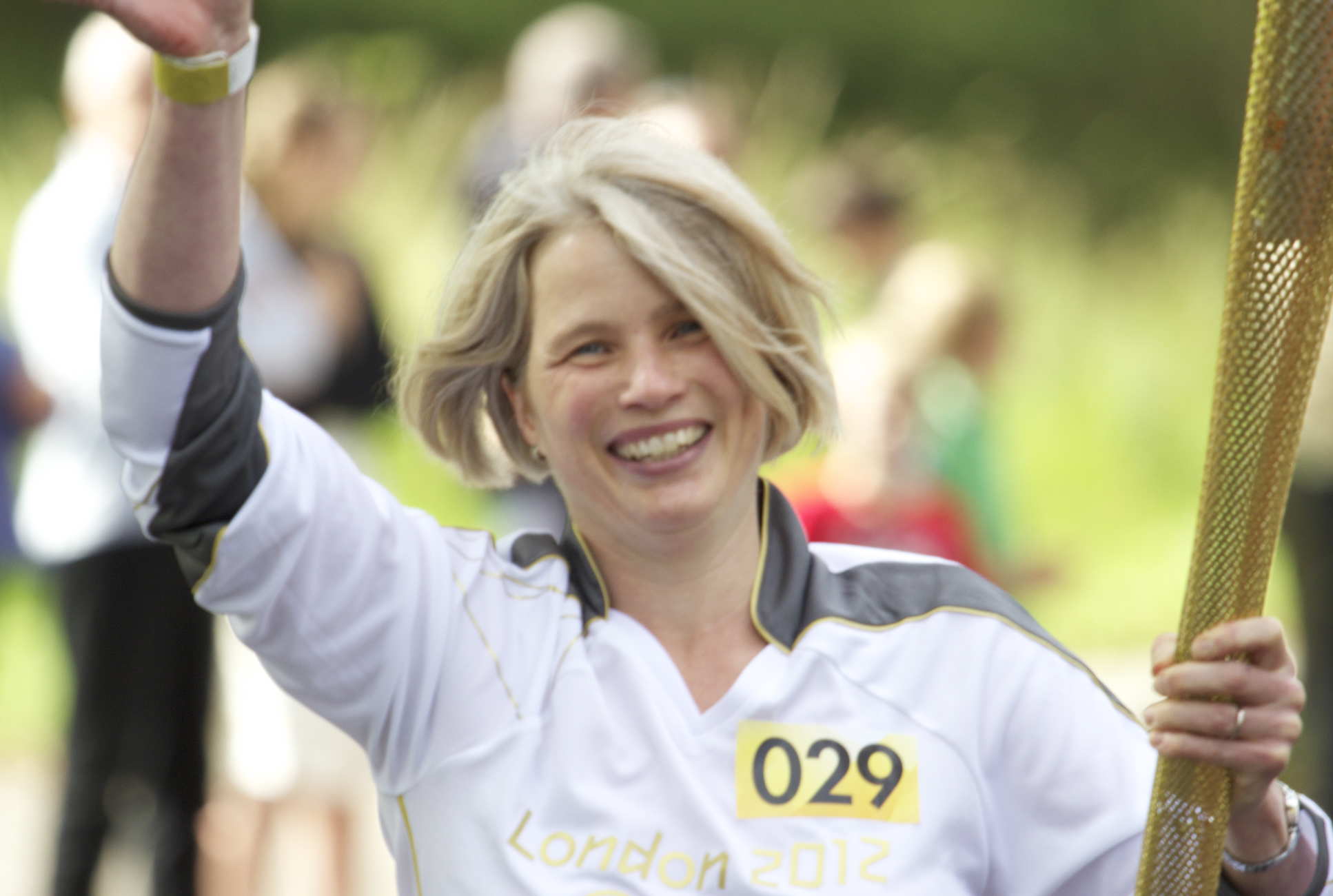
Where I've been:
What inspired you to study science? Has anyone in your family followed this pathway before?
I come from a background of farming in Scotland, and only have an English accent as my father joined the police force in Kent when the farm couldn’t sustain another family, and he was basically too short to join the Scottish Police Force which had height restrictions in those days. Having left school at 14 options were limited for him, thus he became a policeman. So alas there was no pedigree of Science in our families, other than a great Aunt who worked in admin at Dundee University.
What inspired me? To be honest I fell into science, I trained as a physiotherapist and got interested in Mechanics – I guess intrigued by how the body worked and so embarked on a Masters course in Biomedical Engineering – in those days there were no clinical research Masters degrees. The course was tough and a real shock, it was really hard work going back to Maths and Physics, especially after working and earning money. But doing the research project inspired me after a period of really making me learn to question and believe in my abilities and to find the resilience to generate potential solutions. Whilst at that time I despised my supervisor for pushing me to think and be independent, I now appreciate and would thank him for his wisdom in teaching me this skill that has grown with me over the years.
How long have you been at Imperial and why did you choose to work here?
I’ve been here forever! I became a lecturer at Imperial around the time the Schools merged, having previously been at the Royal Postgraduate School where I’d done my PhD and was doing my Post Doc. For me it was opportunity to become an academic and by then I had the research bug, but I don’t think I understood what academia was and what I was getting myself into.
Have you come across any hurdles during your career?
There are always hurdles, it's just navigating a way around them. I’ve been fortunate and opportunistic, possibly saying yes to too many things but finding that it helped me open new doors, collaborations, and basically opportunities to challenge me and grow. I’ve met and continue to meet some amazing people who have inspired and helped me through my careers, particularly my mentors who still sometimes have to help point me in the right direction – sadly though they all seem to be retiring! The science community becomes your extended family and its amazing how like family they get you through your ups and down.
Where I am now:
What is your area of research/work?
My research started out focusing on low back pain and spinal mechanics and went on to encompass all sorts of area from clinical interventions, imaging, mathematical models, and novel devices and innovations to manage this prevalent condition. This has merged into other areas of musculoskeletal medicine, elite sport and amputees. The latter two areas broadened my collaborations across College, particularly with Bioengineering and Mechanical Engineering and my involvement in wearable technologies and digital health. So a small area grew into a wide area, it’s the interdisciplinary work and stimulation that I love about Imperial. Sometimes you find yourself in meetings and making contributions to research programmes you’d never imagine being involved in which is both exciting, inspiring and motivating - although sometimes a little scary!
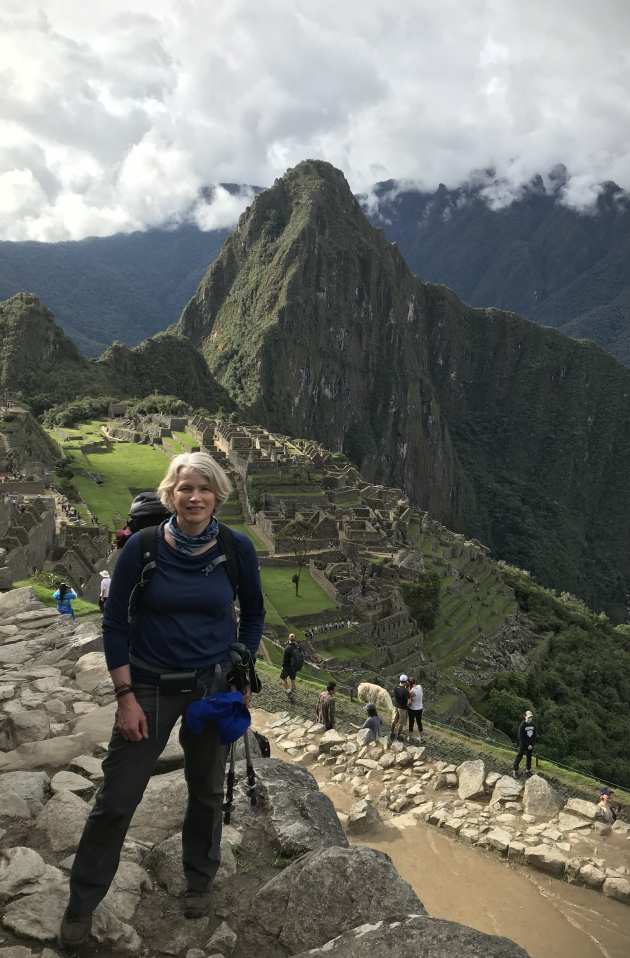
Can you describe some of the most interesting points / milestones you have come across in your science research field?
Achieving my PhD - I had never had thought I’d do one so it was a big boost and confidence builder. My next real boost was getting senior lectureship – I think that’s because I didn’t understand what getting a lectureship meant! So I celebrated my senior lectureship with a big party for friends, family and colleagues. After that it was becoming a Professor which took a while to sink in and to grow into the title! Alongside these things were academic prizes for a big clinical trial, invited talks basically all over the world – perhaps not so good for one’s carbon footprint.
Personal boosts were getting recognised for other work - my role with the College Boat Club, my growing portfolio of educational and management roles. This was manifested in being a torch runner for the 2012 Olympics which was so totally awesome to do and I still have the torch and tracksuit to prove it! Academic milestones were not surprising about key note funding like a huge clinical trial, a centre of osteoarthritis that I was involved, my research over the years with GB Rowing plus of course the Centre for Blast Injury Studies – through which I’ve met amazing young men and a few celebrities including Royalty!
What's next:
These are exceptional times to be working in Medicine. Is there anything in your background that has prepared you for working during this crisis? What has experience taught you about responding to it?
You learn a lot from the people you work with and their journeys. One thing I’ve learnt from people is to take each day as it comes, sometimes you can’t plan every detail and know the answers to all the questions, you just have to be methodical and patient. Research never goes to plan so you learn to be adaptable and to find solutions, with the number of paper and grant rejections you have to be resilient and you have to learn to be self-critical and to take criticism. I guess the main thing is has taught me is patience.
How has the COVID-19 pandemic affected your work and do you see your research work changing in the future?
The pandemic has had a huge impact. We’ve just had a major campus move which was disprutive and unsettling. We finally got our new lab running the day before College closed to COVID-19 so slightly frustrating. Our research is on real people either patients, volunteers, military veterans or athletes so I suspect getting people to volunteer for our research may not be a priority and we may struggle until things are much calmer to recruit into studies in the near future. This is our biggest challenge will people feel confident to come into a lab to have measures taken from them – time will tell.
In terms of how research will change I think our work on digital health and the use of wearables will become more reality and perhaps some of these approaches will be easier to develop and secure funding for – I hope so anyway!
Are you currently involved in the UK’s response to COVID-19?
Yes I’ve become involved with a two groups trying to put together advice and guidelines for people recovering from COVID-19 both those who have been ill at home and those who have been hospitalised. Actually the first step in the journey has been working with MOVE Imperial to develop an infogram for students and staff. People often see recovery as leaving hospital or getting off a ventilator but that is just the start of the long journey of getting back to some form of normal life and activity. We are working on this.
I am also involved in some studies with the School of Public Health understanding the physical and mental impact of lockdown with my focus being the physical impact of the musculoskeletal system especially in older people.
What are you most looking forward to in the next academic year?
Virtual works but real is much more fun - you can celebrate success and share the disappointments too. Using my new lab, cycling to work again, have the odd “real” meeting, new challenges and new students to work with and new and old colleagues and research teams to work with but mostly doing research and teaching again and making a positive impact in both worlds.
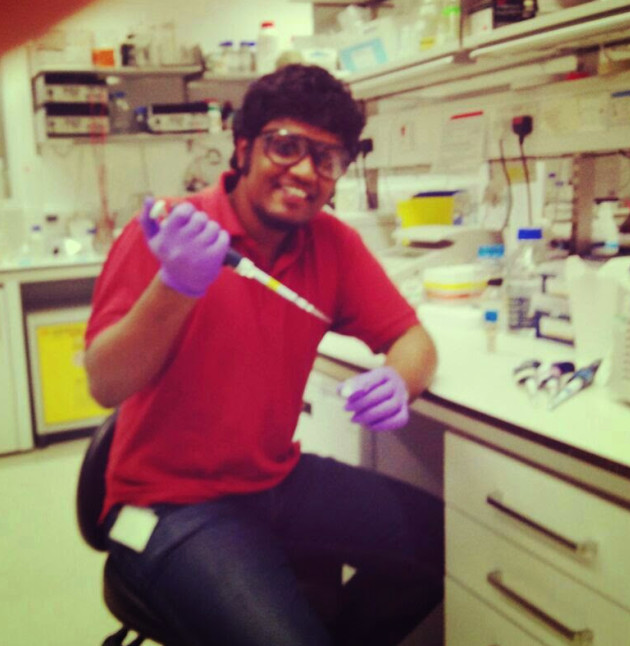
Where I’ve been:
What inspired you to study science? Has anyone in your family followed this pathway before?
As a child, much before I went to school, I would apparently hold random objects and persistently say "I want to open this". In most cases, the object I held was allegedly a non-hollow solid. Years later, in university, the only explanations to disease I found persuasive and satisfying were the ones that looked at disease from the molecular perspective. I think I've always been fascinated by the molecular world. My father studied Botany, and my mother, English literature.
How long have you been at Imperial and why did you choose to work here?
I have been at Imperial for a little more than a year. I was previously at Cambridge, where I did my PhD in molecular biology, and was looking to teach at a place that was open to new technology enhanced methods of teaching. The management at Imperial have been steadfast in their openness and commitment to new ideas and methods of teaching.
Where I am now:
What is your area of research/work?
I used to be in the business of unravelling the assembly mechanism of cell organelles at the molecular level. These days I spend most of my time teaching the molecular basis of disease to medical students. I am directly involved in the planning, teaching and assessment of a module called Clinical Science Integration (CSI) that runs across the first three years of the MBBS/BSc programme at Imperial.
Can you describe some of the most interesting points / milestones you have come across in your science research field?
In the business of unravelling the atomic-level structure of the molecular machines that make up our body, for more than half a century, X-ray crystallography was the only method available, although it had a laughably low success rate. A determined set of people changed that with the introduction of cryo-electron microscopy. This alternate technique had huge advantages and caused a seismic shift in the field. Richard Henderson was one of those determined people – he was awarded the Nobel prize for his contribution to the development of cryo-electron microscopy. Being part of the same department in Cambridge and therefore the Nobel celebrations, I have at home, a bottle of wine signed by Richard the night he won the prize.
What’s next:
What are you most looking forward to in the next academic year?
The world will not be the same place when COVID-19 leaves. It will have left an indelible change in almost every field. In the field of teaching and education, I feel that the adoption of technology has been accelerated by a couple of years. I look forward to teaching in this new world. I have already converted some of the teaching I do into remote-learning tasks that students solve together in their groups (Each cohort of 350 MBBS/BSc students are generally divided into around 50 semi-permanent groups of 7 students at the beginning of the MBBS/BSc programme at Imperial).
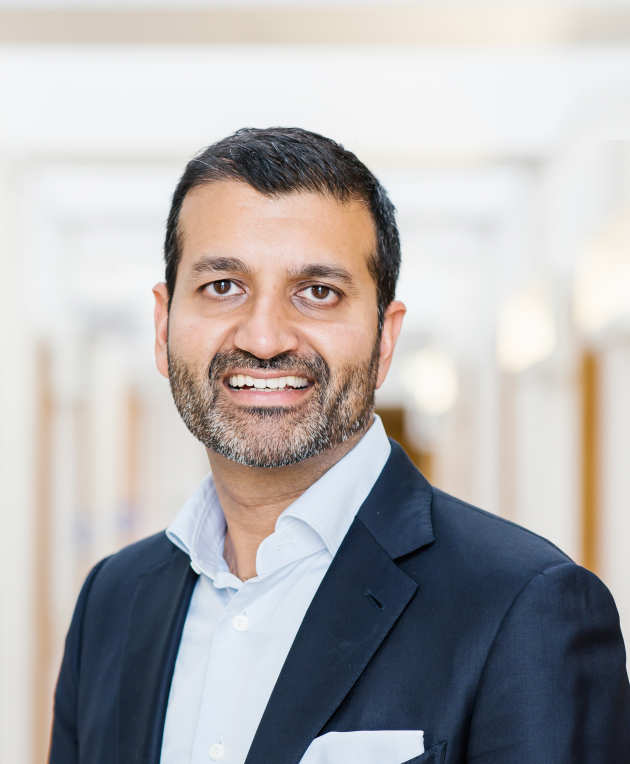 Where I’ve been:
Where I’ve been:
What inspired you to study science? Has anyone in your family followed this pathway before?
As a child I was exposed to medicine a lot as both my parents are GPs. I was inspired to study medicine after the fasciation of how the human body works as well as how illnesses affect it in different ways. Having become in GP and followed in my parents’ footsteps, I am passionate about innovating with healthcare and integrating technology in to every day practice. I believe that general practice should be truly believe we should be more proactive with patients and at our practice we are Digitally Transforming Healthcare to improve patients' lives.
How long have you been at Imperial and why did you choose to work here?
I have been teaching for Imperial since I was a GP registrar in 2007. I have taught for them ever since and have found it both rewarding and challenging. In 2013 I was awarded "GP Teacher of the Year" by the faculty. We are a practice that pilots new programmes and gets involved in teaching as much as possible. In this new world I believe Imperial will be at the forefront of how to innovate and move medical education forward
Have you come across any hurdles during your career?
I have come across multiple hurdles throughout my career, and continue to do so. I use these hurdles as a catalyst to become a the best clinician I can. I use them as a huge learning experience as in Medicine you are a lifelong learner.
Where I am now:
What is your area of research/work?
MBChB MRCGP DCH PGDIP (Cardiology) PGcert
Digitally Transforming Healthcare to improve patients' lives
What’s next:
These are exceptional times to be working in Medicine.
Is there anything in your background that has prepared you for working during this crisis? / What has experience taught you about responding to it?
In every crisis there is an opportunity to do things differently and think outside the box.
How has the COVID-19 pandemic affected your work and do you see your research work changing in the future?
We have moved every patient to triaging over the phone. We are performing Video consults, using photos for Rashes and organising drive in vaccinations. We have team meetings with Microsoft Teams and are continually looking at digital platforms to improve team working as well as how we manage patients.
Are you currently involved in the UK’s response to COVID-19?
As a practice we do a lot of research and are currently involved in several trials for Covid-19 for patients in primary care.
What are you most looking forward to in the next academic year?
I am looking forward to see how we can think outside of the box with education in this new world.
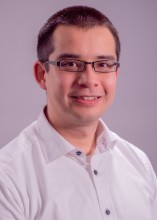
Where I’ve been:
What inspired you to study science? Has anyone in your family followed this pathway before?
I loved the sciences, history and politics at school. It was physics that I found most interesting though. Medicine was an opportunity to bring together lots of different skills. My aunt is a doctor but I certainly wouldn't describe myself as coming from a medical family.
How long have you been at Imperial and why did you choose to work here?
I started here as a junior doctor in 2010 when I began my higher specialty training in public health medicine. I didn't necessarily choose Imperial, but I wanted to balance my clinical career with academic work. And they offered me a job!
Have you come across any hurdles during your career?
So many. Whether it's all the exams you have to take as a doctor, or the long working hours and sometimes challenging situations - overcoming these is what makes the job so satisfying.
Where I am now:
What is your area of research/work?
Consultant in Public Health Medicine / Module Lead for Lifestyle Medicine & Prevention.
I work in local government as a senior public health doctor but spend more of my time leading various teaching at Imperial. My interests are in applied research and using evidence to change practice.
Can you describe some of the most interesting points / milestones you have come across in your science research field?
Right now, amid COVID-19, we're seeing how epidemiology and public health sciences immediately translate into real-world practice and shape every part of our lives.
What’s next:
These are exceptional times to be working in Medicine.
Is there anything in your background that has prepared you for working during this crisis? / What has experience taught you about responding to it?
I was an army reservist while at medical school and many of my crisis management skill are learnt from those experiences.
How has the COVID-19 pandemic affected your work and do you see your research work changing in the future?
The COVID-19 pandemic is affecting just about every waking moment of my life right now
Are you currently involved in the UK’s response to COVID-19?
I'm currently leading our local implementation of NHS Test and Trace.
What are you most looking forward to in the next academic year?
Seeing how we adapt and learn entirely new (and more effective) ways to teach. In the last three months the world, the NHS and government has changed more than in the previous decade.
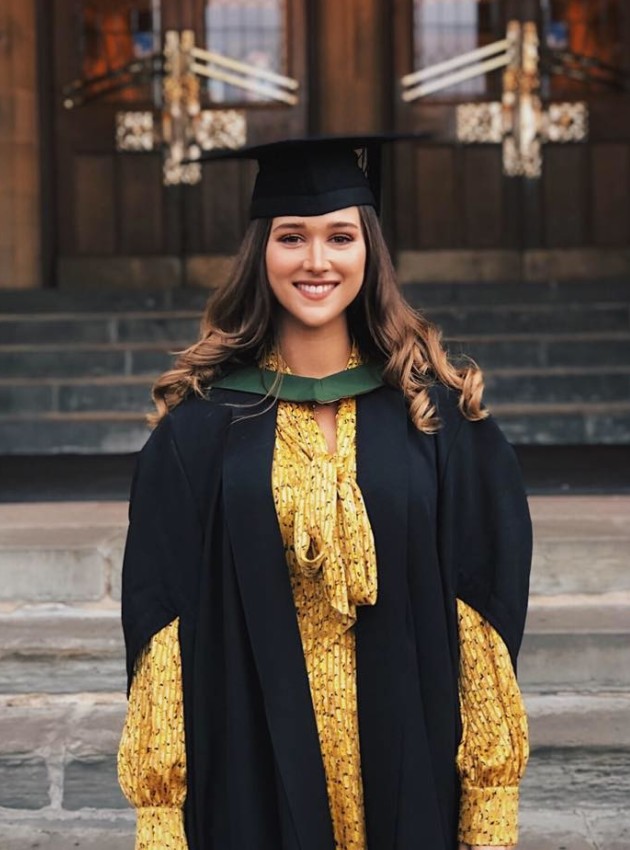 Where I’ve been:
Where I’ve been:
What inspired you to study science? Has anyone in your family followed this pathway before?
Since sixth form I have been fascinated with the relationship between structure and form of our cells, tissues and organs. As I continue to learn, my admiration for the remarkable feat of biological engineering that is the human body grows exponentially. Growing up I was surrounded by linguists, photographers and interior designers and felt that as a scientist I was lacking creativity and imagination. However, when studying for a BSc in Biomedical Science at the University of Sheffield I understood that scientists are exceptionally artistically gifted. In my anatomy lessons, the anatomists carried out intricate dissections of the human body and demonstrated to us using elaborate drawings of networks of blood vessels, nerves, muscles and more. By studying for a Masters degree in Human Anatomy and Education also at Sheffield, I not only mastered the art of dissection but also how to innovatively deliver anatomy education to engaged medical, dental and biomedical science students.
How long have you been at Imperial and why did you choose to work here?
I began working at Imperial in January 2020, and although I have only been here for a very amount short time (5 months), I already feel immersed in the vibrant, supportive Imperial community that is dedicated to delivering teaching and learning that is at the forefront of higher education. I wanted to work at Imperial for two reasons: First of all, I wanted to be a key driver in the evaluation and implementation of the new medical curriculum which is aimed at addressing the crucial, relevant issues affecting healthcare today. Secondly, I wanted to live in one of the most exciting cities in the world and experience all of the wonderful cultures that constitute London.
Have you come across any hurdles during your career?
From the beginning of my career as an educator I have experienced dips in my confidence in my ability as a young, female academic. When studying for my Masters' degree, I read in a piece of educational literature that “young, female teachers would have difficulty gaining credibility, this made me feel as though my students were not going to take me seriously. Since working at Imperial, I have experienced the complete opposite. I believe that by being just a few years older than the cohorts that I engage with, I am able to relate to and design lessons that are in line with the needs of the current generation of students. I am now extremely grateful that I hold these characteristics as I feel as though they shaped me into an approachable and empathetic teacher.
Where I am now:
What is your area of research/work?
I am currently investigating the use of different technologies to enhance the delivery of anatomy and to ensure that the field of anatomical education is dynamic in line with the ever-changing landscape of higher education. It is important to emphasise that technology enhanced learning is being adopted to augment the more traditional ways of learning anatomy such as by dissection and looking at cadaveric specimens. The goal of our current research is to identify the areas where technology such as augmented reality comes into its own in the discipline of anatomy.
Can you describe some of the most interesting points / milestones you have come across in your science research field?
One of the most profound things I have come across in my research and study of anatomical education is that it is not sufficient for educators to deliver the same material in the same way to different cohorts of students. This is because each cohort of students e.g. medics, dentists and biomedical scientists have different needs and expectations of their anatomical education. Furthermore, amongst a single cohort of students each individual possesses a set of unique learner characteristics that determines the way in which they obtain and retain information. Therefore, it is essential for a teacher to be insightful, innovative and conscientious when considering the design, development and delivery of anatomy education. I have also carried out research investigating the causes of gender imbalance in STEM in higher education in the UK. For this study I looked into the reasons why there are so few women in higher paid roles in the university setting and discovered a combination of factors including; a lack of relatable role models, raising a family, the recruitment process and subconscious bias. These findings have caused me to be a very passionate advocate for the progression of women in STEM careers, particularly in higher education.
What’s next:
These are exceptional times to be working in Medicine.
Is there anything in your background that has prepared you for working during this crisis? / What has experience taught you about responding to it?
During the COVID-19 pandemic, myself and my colleagues have been challenged to quickly adapt to a remote way of working, both with each other and with our students. Fortunately, my digital teaching experience has meant that I have been able to establish ways of delivering anatomy teaching sessions that are as interactive and interesting as they would have been in the dissection room. For anatomy, one of the most important factors is for students to appreciate the 3-dimensional nature and relationships of the different structures of the body- this has been the most difficult hurdle to overcome. To ensure that students continue to have a well-rounded and in depth understanding of human anatomy during the current climate, we have been researching a number of different techniques and applications to be employed in the upcoming academic year.
How has the COVID-19 pandemic affected your work and do you see your research work changing in the future?
I believe that the COVID-19 pandemic will change the way higher education institutions teach far into the future, and therefore it is essential that we carry out research to discover the teaching methods which provide the greatest learning experience for students.
What are you most looking forward to in the next academic year?
I am most looking forward to welcoming and working with the new cohort of medical students who will be paving the way for one of the most dramatic but exciting changes to university education that we have experienced. I am looking forward to creating engaging learning events and sharing these with students who I hope will provide insightful feedback on their experience.